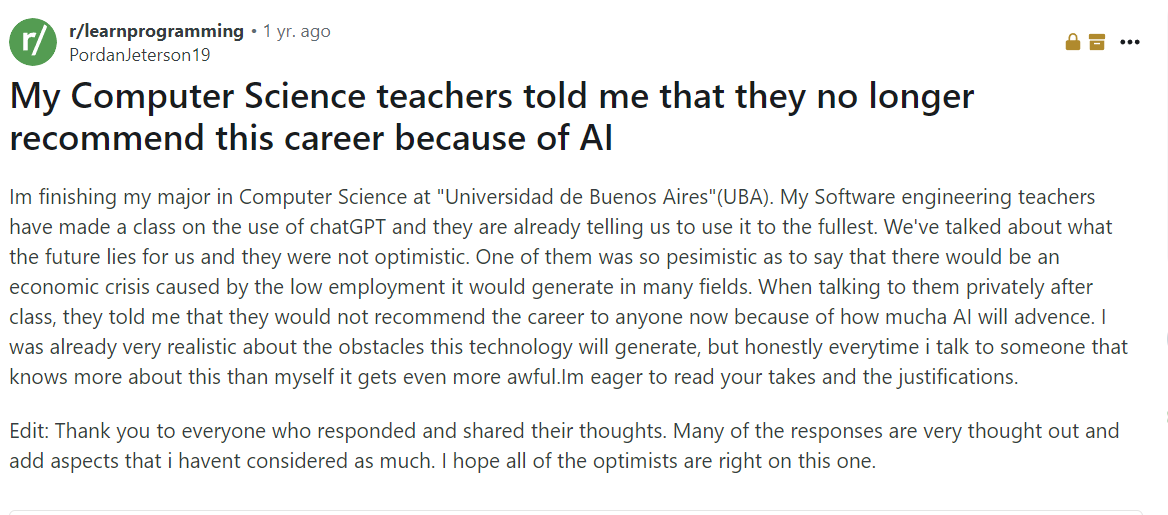AI - 10 Years Later

10 years ago, Sam Altman posted an article about AI
I thought it would be fun to revisit it and see how accurate his predictions were.

Interestingly, I still think that even with all of the progress that has been made, people are still underestimating the impact that AI will have on the world and should probably pay more attention to it than they currently are.
I'm amazed at the number of people, executives and businesses that have never heard of Chat GPT, let alone used it.
The recent article "from chat gpt to agi" shows that we are potentially staring at an increase equivalent to the leap from GPT2 to GPT4 over the next 3 years. Even though we have had so much progress in the last 5 years, it still feels like hardly anyone is adjusting their thinking to account for this.
My Favourite Incorrect Prediction

Sam! Well if ever there was a quote, that didn't age well, this is it.
This take is quite interesting as it is completely the opposite of his idea generation theory where he talks about the importance of thinking big and having big scary ideas.
"You want to be able to project yourself 20 years into the future, and then think backwards from there. Trust yourself—20 years is a long time; it’s ok if your ideas about it seem pretty radical."

I suppose this is now those same CS professors that are recommending that you no longer study CS, due to the fact that AI is going to take over the world?

Sam's thoughts on Creativity

These reflections from 2014 highlight a fundamental challenge in artificial intelligence: the quest for artificial consciousness and autonomous desire. Fast forward to the present, and we have witnessed remarkable progress in AI's ability to perform complex tasks, particularly in creative domains. Tools like DALL-E and MidJourney exemplify this evolution. These models can generate stunning images from textual descriptions, showcasing AI's burgeoning creative capabilities.
While these advancements demonstrate AI's proficiency in specific tasks, they still operate within the parameters defined by their programming and training data. They don't possess autonomous desires or consciousness; their creativity is a reflection of human inputs and extensive datasets. The core question Altman posed—how to make a computer program that independently decides to care about learning or creating—remains open.
Today's AI can simulate creativity and produce novel outputs, but it does so without self-awareness or intrinsic motivation. These tools are powerful extensions of human creativity, pushing the boundaries of what machines can achieve. However, they still lack the self-directed purpose that defines true consciousness.
I wish we could go back 10 years and show Sam what we have achieved with these image generators and hear his natural reaction. Espeically the part about writing a novel.
Final thoughts

I'd say that we are well on the way in this domain. On a personal level I spend far more of my time thinking than doing thanks to the tools that we have at our disposal. I can't wait to see what the next 10 years bring.
His article has inspired me to think about the future and big scary ideas. It's fun to dream and to also look back on and see how far we have come.
Time to go make some predictions!